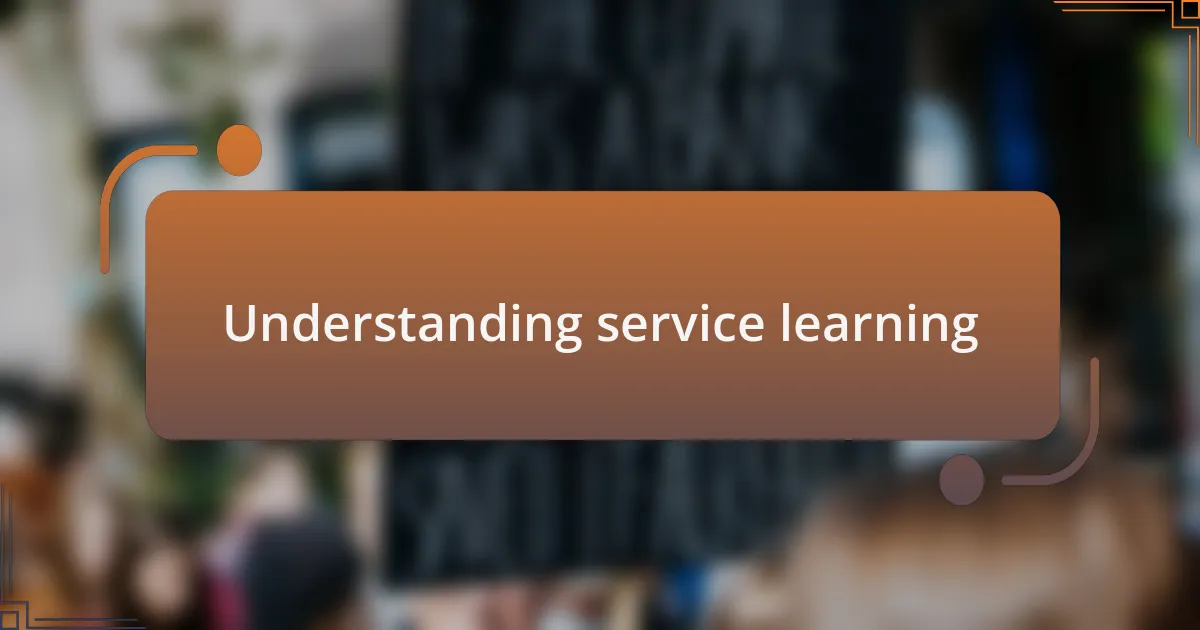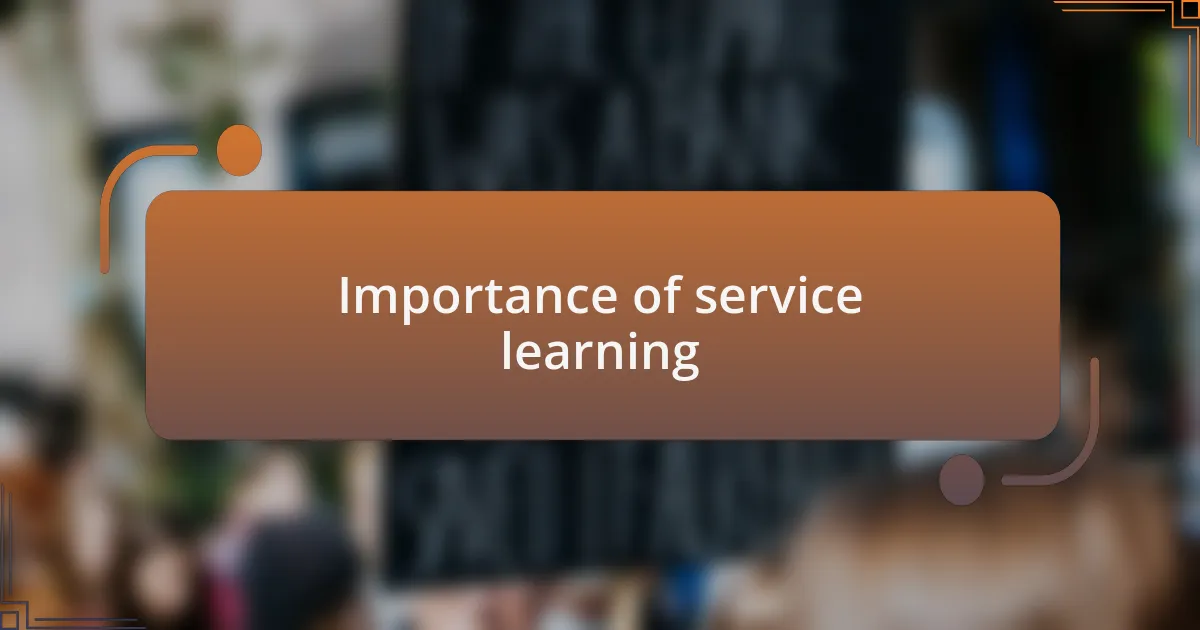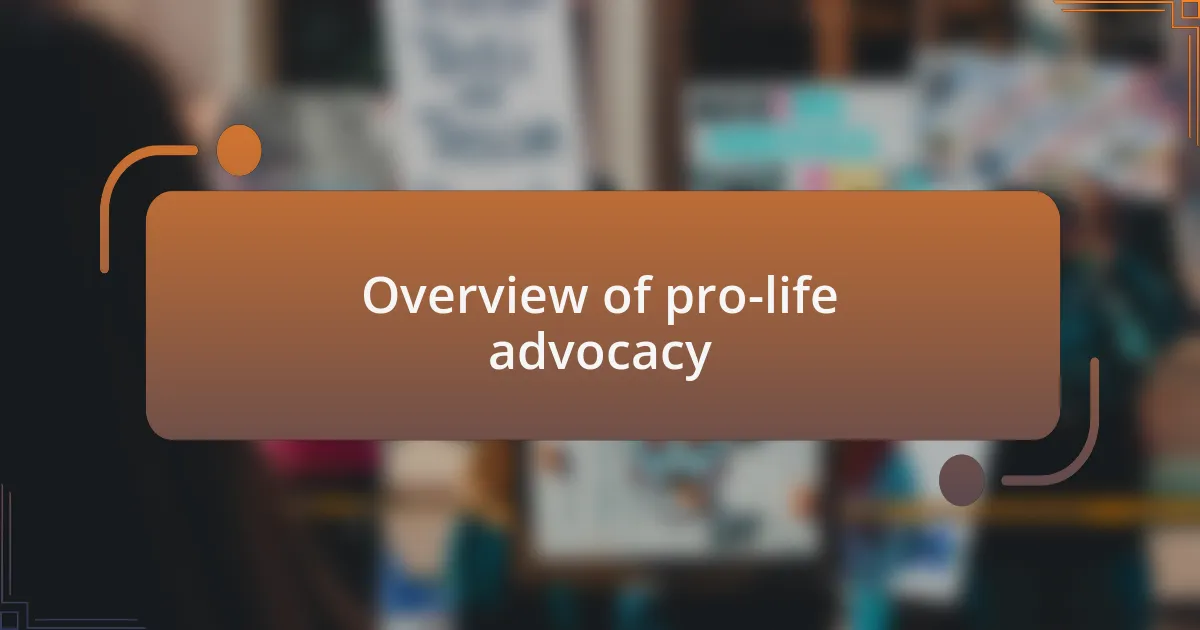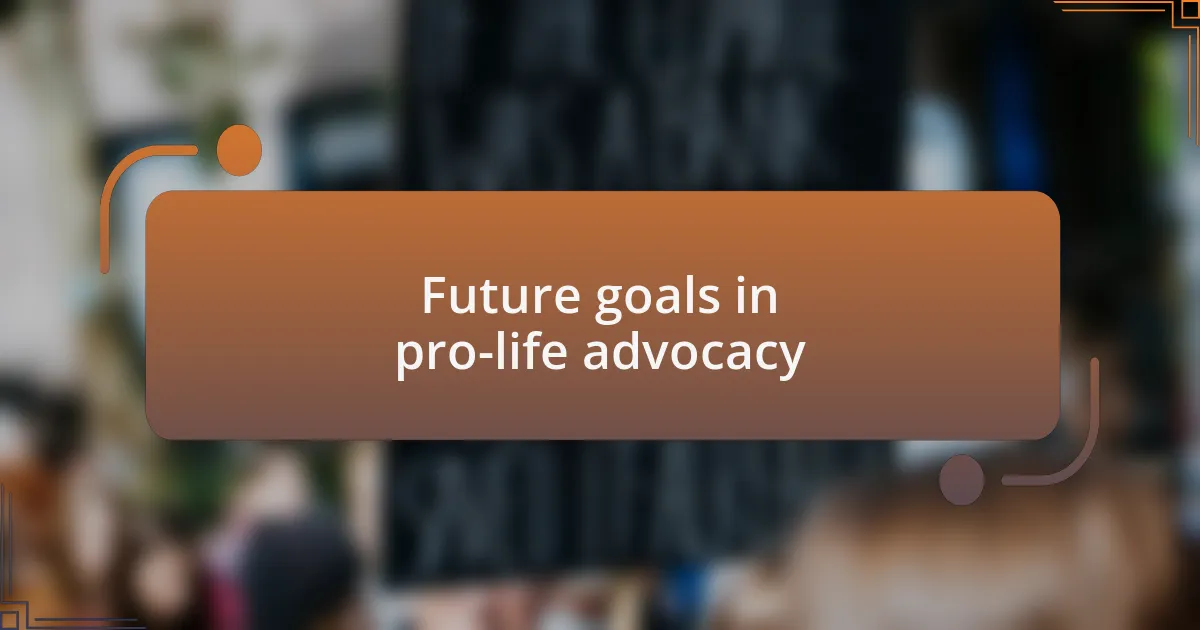Key takeaways:
- Service learning integrates community service with academic studies, fostering reflection on social issues and personal values.
- Direct engagement in service projects helps bridge the gap between theory and practice, turning abstract concepts into meaningful personal stories.
- Pro-life advocacy emphasizes the inherent dignity of life and focuses on supporting women and families in challenging situations.
- Future goals include expanding educational outreach, developing support networks for expectant mothers, and advocating for policy changes to create a nurturing environment for families.

Understanding service learning
Service learning is a unique educational approach that blends community service with academic study, allowing individuals to reflect on their experiences and deepen their understanding of social issues. I remember my first experience with service learning; I was both nervous and excited as I stepped into a community center for the first time. I found myself not just serving but truly engaging with the people, which made me question how my efforts could impact their lives positively.
At times, it felt overwhelming to grasp the complexities of social challenges while trying to formulate solutions through my service. This process of reflection helped me look beyond the surface, leading me to ask myself profound questions about my values and beliefs. Was I truly making a difference, or merely scratching the surface? It was through wrestling with these questions that I began to appreciate the transformative power of service learning.
Beyond mere volunteering, service learning urges us to connect our academic knowledge to real-world applications, fostering a richer understanding of the issues at hand. In working alongside various community members, I discovered how important it is to listen and learn from their stories. These interactions not only expanded my perspective but also fueled my passion for being actively involved in advocacy that resonates with my beliefs.

Importance of service learning
Service learning is essential because it bridges the gap between theory and practice. I remember participating in a project that focused on maternal health, where we not only learned about the statistics and risks but also interacted with expectant mothers facing these challenges. This direct engagement made the concepts I studied in class resonate deeply, transforming abstract data into personal stories filled with hope and struggle.
The emotional connection I developed during my service learning experience was profound. I often reflected on the strength of the individuals I met and how their resilience inspired me to advocate further for their needs. It made me wonder: How can we ignore the voices of those who have so much to teach us about perseverance and love, especially in a pro-life context?
Engaging in service learning invites us to step outside our comfort zones; it pushes us to question our preconceived notions. I found myself challenged by the diverse opinions and experiences of those I served, which ultimately shaped my own understanding of life’s value. Isn’t it fascinating how stepping into someone else’s world can illuminate our journey, making us better advocates for the causes we truly care about?

Overview of pro-life advocacy
Pro-life advocacy is fundamentally about cherishing and protecting life at all stages, from conception to natural death. I’ve seen firsthand how this commitment goes beyond mere belief; it fosters community, compassion, and support for families. Engaging with people in this movement, I felt a profound sense of shared purpose, reminding me that every life has inherent dignity and worth.
At times, I found myself grappling with complex issues surrounding unintended pregnancies and the choices faced by women. I recall a moment when a friend shared her story about considering abortion due to overwhelming circumstances. Listening to her fears and hopes solidified my understanding that pro-life advocacy isn’t just about opposing abortion; it’s about ensuring that every person has the resources and support needed to choose life.
I often ask myself: What does it mean to truly stand for life? In my experiences, it means amplifying voices, providing education, and mobilizing support networks. These connections have opened my eyes to the myriad challenges individuals face, reinforcing the notion that pro-life advocacy encompasses love, understanding, and a commitment to uplifting both the mother and the child.

Future goals in pro-life advocacy
Looking ahead, one of my primary goals in pro-life advocacy is to expand educational outreach within communities. I remember visiting a local high school where I facilitated a discussion on the realities of unintended pregnancies. It was eye-opening to witness students grappling with the complexities of these situations, and it dawned on me that providing accurate information can empower them to make informed choices. How can we truly embrace life if we don’t equip future generations with the understanding they need?
Moreover, I’m passionate about developing more robust support systems for expectant mothers. While volunteering at a crisis pregnancy center, I met a young woman who felt isolated and overwhelmed. Our conversations highlighted the importance of building networks that not only offer resources but also foster relationships that provide emotional support. Aren’t we all deserving of a community that champions our choices, no matter how difficult they may be?
Finally, advocating for policy changes that support family-friendly initiatives is crucial. Observing the stark realities faced by those struggling financially made me realize that without systemic changes, many women will continue to feel trapped. If we want to uphold the value of life, shouldn’t we also strive to create an environment where families can thrive? It’s a vision that keeps me motivated as I work toward transforming these goals into realities.